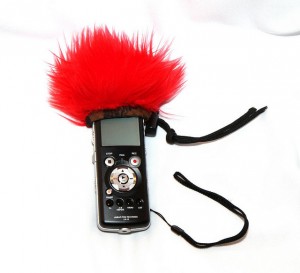Search Results for Tag: tips
How to improve your quotes and voice clips

(photo: flickr/Quinn Dombrowski CC:BY-SA)
Almost every news or feature story – whether it’s for print, broadcast or online – benefits from having good quotes, voice clips or sound bites.
Quotes directly express the views of the people you talked to, lend credibility to your story, and liven up your writing. Quotes are like a spice that adds flavor and zest to your story. Without them, while your piece might well have a lot of informative facts, it can be pretty bland.
But figuring out exactly which bits to pull from your interviews and put in your story can be challenging even if you are an experienced reporter.
onMedia’s Kyle James has trained radio, print and online journalists in countries around the world for years. In this post, he offers a few guidelines on keeping an eye out for what’s quotable and what’s not.
![]() read more
read more
Digital audio recorders for journalists: what to look for
There are many options out there for journalists wanting to buy a digital audio recorder. But before spending that hard-earned cash on a new device, you should think about what you’ll be using the digital recorder for. Are you going to be doing your recording in the Amazon rainforest or in your local mayor’s office? What’s most important for you? The sound? The size? Or do you need a lower-cost audio recorder that won’t empty your bank account?
onMedia’s Kate Hairsine and Kyle James have been working with digital recorders for over a decade. Here they go through some of the characteristics worth considering in a recorder and tell you what’s personally important to them.
![]() read more
read more
Reporting on climate change: Part II
Good reporting on climate change is important, and likely to become more so in the future as the impacts of changing weather patterns on lives and economies grow. But climate change journalism can be challenging. It’s complicated, controversial and there is a lot of information, and misinformation, to wade through. In part I of this two-part series, Kyle James offered tips on how to report on a changing climate. In this post, he looks some common pitfalls to avoid.
![]() read more
read more





